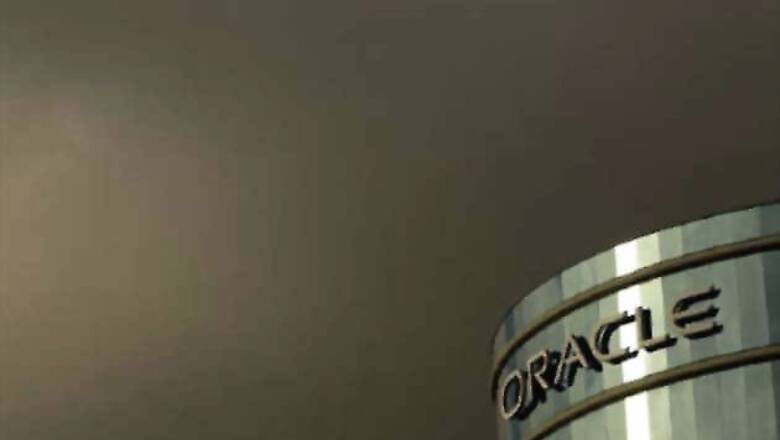
views
San Francisco: Oracle missed expectations for software sales and subscriptions for the second straight quarter, sending its shares plunging as investors worried CEO Larry Ellison may have trouble getting the technology giant back on track.
On Thursday, Oracle executives forecast that new software sales and subscriptions will rise 0 percent to 8 percent this quarter and blamed weakness in the past quarter on disappointing sales in Asia and Latin America.
Oracle, which is trying to fend off Salesforce.com and other increasingly aggressive rivals focused on providing software over the cloud or Internet, plans to move its stock listing to the New York Stock Exchange in July from the Nasdaq, a major win for the older bourse.
Executives said the move was in shareholders' best interests, without elaborating. Oracle also said it would double its quarterly dividend to 12 cents a share.
"Organic growth is slowing and the company has a lot of pressures it has to deal with. They're late to the cloud and playing catch-up," said Mark Moerdler, an analyst at Bernstein. "Doubling the dividend - they're trying to deliver a message that their ability to deliver significantly more cash to investors is going to continue."
Overall, Oracle's revenue stood unchanged at $10.9 billion in the period, the company's fiscal fourth quarter, ended May 31. That missed the $11.122 billion analysts had expected on average, according to Thomson Reuters I/B/E/S.
More closely watched revenue from new software sales and Internet-based software subscriptions rose 1 percent to $4 billion, short of an average forecast of about $4.2 billion, according to FBR Capital analyst Daniel Ives.
Shares of the software company fell more than 8 percent to $30.46 after hours, after closing down 2.6 percent at $33.21 on the Nasdaq.
"This is just really bad," said Kim Forrest, a senior analyst with Fort Pitt Capital Group. "I don't really trust after-hour trading to accurately reflect what the stock will do the next day. But it shows you how frustrated shareholders are right now."
Most analysts recommend buying shares of Oracle, according to StarMine Professional, with many expecting a pickup in performance as the global economy improves and corporate customers become more willing to spend on IT.
Others say the 36-year-old tech company's era of fast growth and lofty margins, when it could dictate prices because of its premier market position, may be waning.
Smaller, aggressive companies are offering competitive products at prices that often undercut Oracle, whose strategy is to integrate cloud software with its own hardware for greater efficiency.
By the numbers
Investors scrutinize new software sales because they generate high-margin, long-term maintenance contracts and are an important indicator of future profit. The company had forecast a 1 percent to 11 percent rise in new software license and cloud subscription revenue for its fiscal fourth quarter.
Ellison blamed Oracle's performance on the poor global economic environment. "It was clearly an economic issue, not a product, competitive issue," he told analysts on a conference call.
Chief Financial Officer Safra Catz said deals Oracle missed in the fourth quarter did not go to competitors, but instead were put off or shrank from their original sizes. She previously blamed Oracle's rapidly expanding salesforce for a severe miss in software sales in the third quarter.
Net profit for the fourth quarter rose 10 percent to $3.8 billion, or 80 cents per share. On an adjusted basis, Oracle earned 87 cents per share.
Revenue from Oracle's hardware division, which it acquired through the $5.6 billion purchase of Sun Microsystems in 2010, fell 13 percent to $849 million.
Oracle had forecast that hardware product revenue for the May quarter would fall between 12 percent and 22 percent.
The division's revenue has fallen every quarter since Oracle closed the Sun deal, but Ellison said in December he expected hardware systems revenue to start growing in the May quarter.















Comments
0 comment